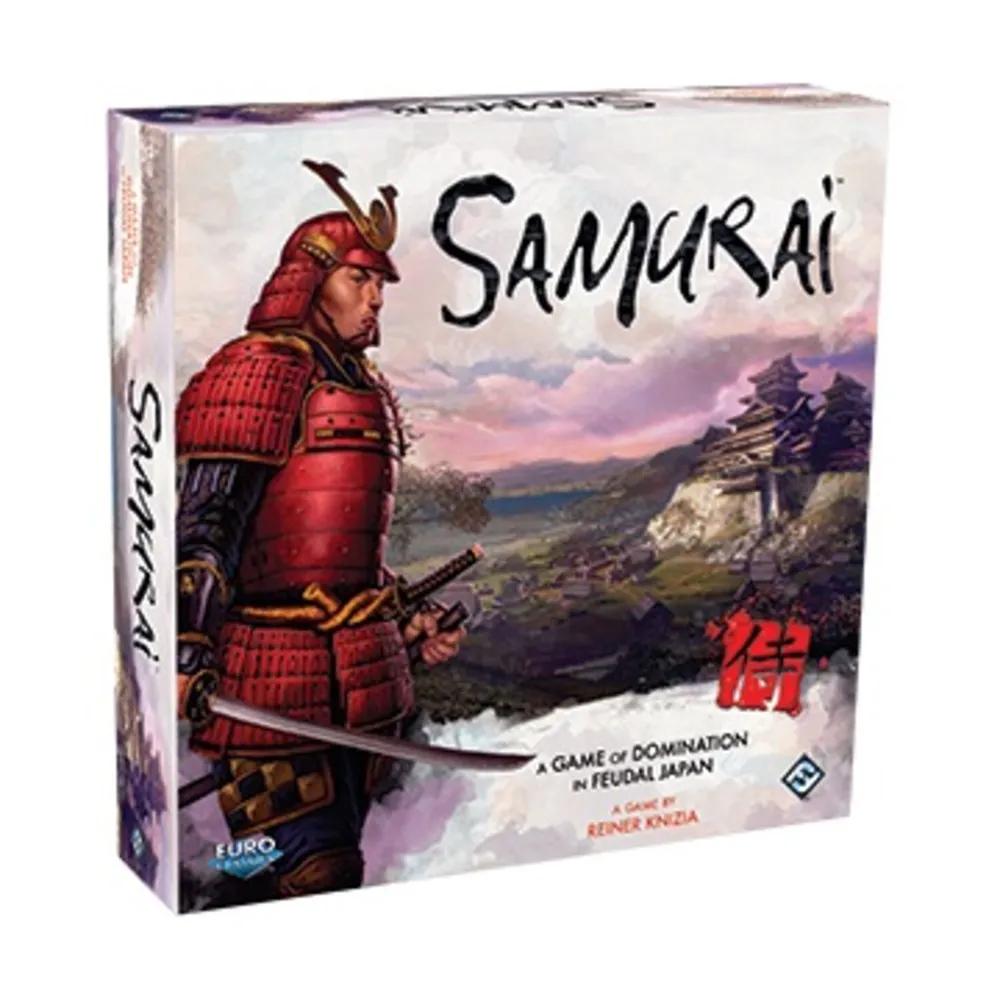Samurai (1998)
Samurai
“Samurai” is a German-style board game invented by Reiner Knizia and distributed by Hans im Glück in Germany and Fantasy Flight in the United States. The game is set in medieval Japan and recreates the turbulent 500-year period of Japanese history, starting from the 12th century end of the Heian period to the beginning of the Edo period. It was first released in 1998 and has since gained popularity among board game enthusiasts.
Why is Samurai Popular?
Samurai is a popular and significant board game for several reasons:
– Reiner Knizia’s Design: Reiner Knizia is a renowned board game designer, and Samurai is one of his many successful creations.
– Historical Setting: The game captures the essence of medieval Japan and its complex political landscape, making it an immersive experience for players.
– Engaging Gameplay: Samurai combines area majority/influence mechanics with hand management and set collection, offering a unique and challenging gameplay experience.
– Replayability: The game has a complex branching gameplay and a randomized setup, ensuring that each playthrough is different and engaging.
Game Components of Samurai
How To Setup Samurai
To set up the game, players first assemble the modular board to create a map of Japan. Each town on the island is seeded with caste tokens (rice paddies, castles, and Buddha heads). Each player selects a starting array of five tiles from their total of twenty and places them behind their player screen. The remaining tiles are kept hidden.
Gameplay Mechanics and Game Objective
Player Experience
Samurai is a game of strategic depth and tactical complexity, despite its simple rules. Each turn presents a unique puzzle, as players must carefully manage their tiles to maximize influence while anticipating opponents’ moves. The game’s dynamic nature ensures that no two games are alike, thanks to the randomized setup and the interplay of player actions.
Pros
Cons
Personal Thoughts on Samurai
Samurai is an excellent choice for fans of abstract strategy games and those who appreciate the tactical complexity of Reiner Knizia’s designs. It is particularly well-suited for players looking for a game that requires thoughtful planning and adaptation. However, it may not be the best fit for players seeking games with strong thematic elements or those who prefer more narrative-driven experiences. For collectors and enthusiasts of strategic games, Samurai remains a highly regarded and engaging addition to any board game collection.
We are supported by our audience. When you purchase through links on our site, we may earn an affiliate commission, at no extra cost for you. Learn more.

